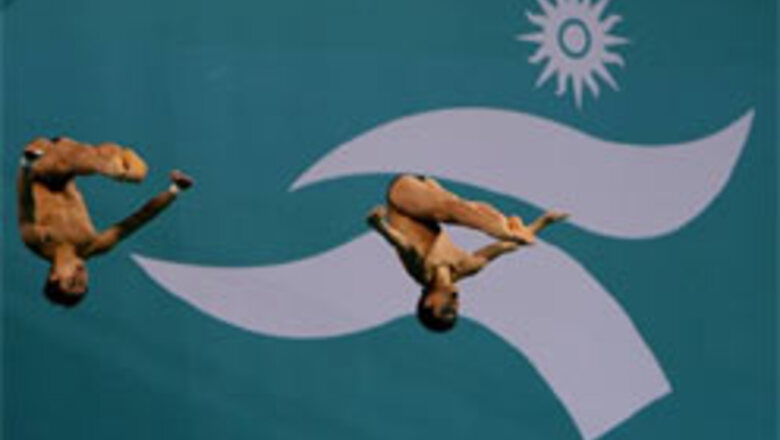
views
Doha: The Asian Games resemble a Summer Olympics in many ways: at 10,000 about the same number of athletes, and with even more sports at 39. Unfortunately, even at doping.
The continental games for more than half the world's population was hit with its third doping announcement in as many days on Monday when weightlifter No 4 failed a doping test. This time, it was silver medallist Oo Mya Sanda of Myanmar who was suspended and forced to return her medal.
At the Athens Olympics in 2004, 22 athletes tested positive for banned substances or for violating anti-doping regulations. Four years earlier, 11 athletes tested positive for drugs, the most since 12 at the 1984 Los Angeles Olympics and six athletes were stripped of medals, including three gold winners.
Officials here in Doha hope things don't get that bad. But although there are only four days left of competition, the results showing so far are only from the first five days of testing. So stay tuned.
Sanda, who competed in the 75-kilogram class, tested positive for a banned metabolite of an anabolic agent. She waived her right to have her second, or B sample, analysed, said Husain Al Musallam, director general of the Olympic Council of Asia.
The bronze medallist took the silver, and Sinita Darmariani of Indonesia, who originally finished fourth, is now the owner of a bronze.
Al Musallam defended the number of positive tests so far at Doha, saying its anti-doping regime was a big improvement on previous games.
"At the (2002) Busan Asian Games there were less than 1,000 total tests, and the number of positive doping cases was 10," he said. About 800 of the planned 1,200 doping tests have been conducted so far in Doha.
On Sunday, two Uzbekistan weightlifters tested positive for banned substances and were disqualified.
Than Kyi Kyi, a female weightlifter in the 48-kilogram class from Myanmar, tested positive for a banned diuretic and was disqualified in the first doping announcement made on Saturday.
Trying to take some of the negative gloss off the day was world record holder Liu Xiang, who qualified easily for Tuesday's final of the 110-metre hurdles.
Liu won his heat in 13.74 seconds, 0.86 slower than his world mark. In the faster second heat, Masato Naito of Japan was first in 13.70 and Shi Dongpeng of China second in 13.71.
PAGE_BREAK
Yusuf Saad Kamel made it a 1-2 for Bahrain in the men's and women's 800 metres when he took gold in the men's event. The 25-year-old Kamel won in a time of 1:45.74.
Kuwait's Mohammad Al Azemi got the silver finishing half a second behind Kamel, while Ehsan Mohajershojaei from Iran took bronze. Maryam Yusuf Jamal of Bahrain won the women's 800 on Saturday.
"My race was amazing," said Kamel. "I came here to win."
In tennis, the top seeded men's and women's singles players advanced to the semi-finals.
ATP Tour regular Lee Hyung-taik of South Korea beat Dennis Istomin of Uzbekistan 6-1, 7-5. And China's Li Na had some early difficulty but beat Iroda Tulyaganova of Uzbekistan 3-6, 7-5, 6-2.
South Korean golfers felt right at home at the Doha Golf Club. Kim Kyung-tae and Ryu So-yeon won individual honours and led the men's and women's teams, respectively, to gold medals on the same course that will host the Qatar Masters on the European and Asian pro tours at the end of January.
The golfing success helped South Korea move past Japan and into second place in the gold medal race with 43 compared with Japan's 40, through competition late Monday. China were still runaway leaders with 120 gold medals and edging closer to their 150 from Busan in 2002.
On Monday, Qatar Olympic officials reiterated their plans to bid for the Summer Olympics.
Shiekh Saoud bin Abdul Rahman Al Thani, secretary general of the Qatar Olympic Committee, said Qatar would "keep trying until we win" if they are unsuccessful in getting the Olympics in 2016.
Defending his city's lack of infrastructure and traffic problems, Al Thani said Doha was not unlike any other large city, including New York, London or Paris.
"We are in the process of making more highways. We still have 10 years to go, so we can do many things to solve this problem." said Al Thani. "And if it has been done in Athens, it can be done anywhere in the world."


















Comments
0 comment